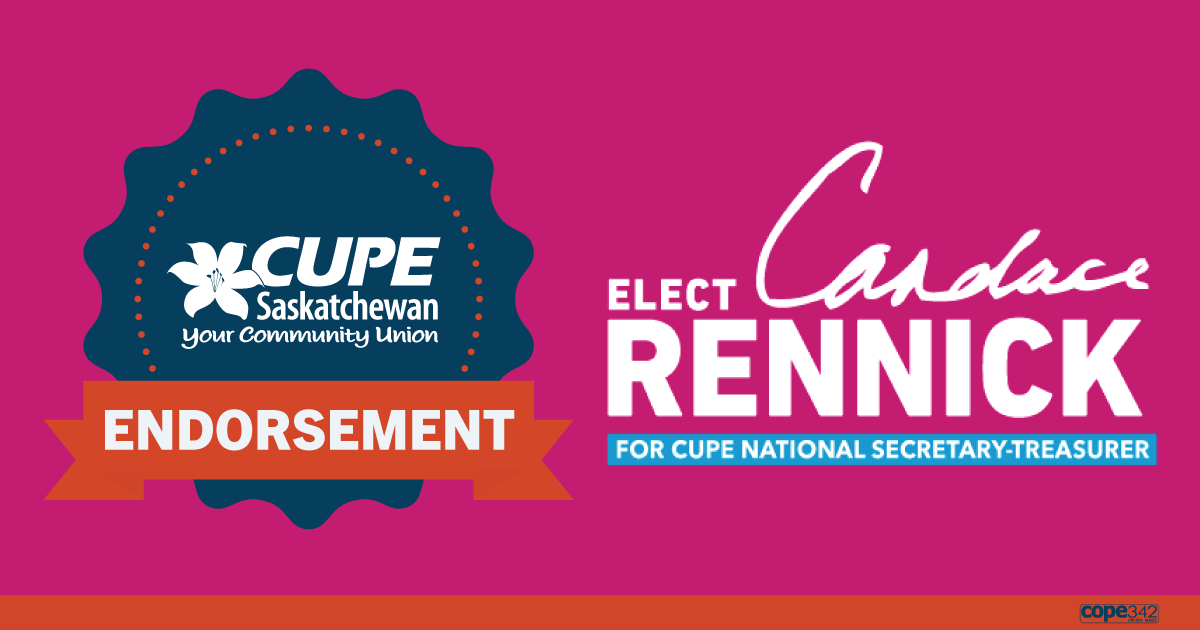Education support workers are asking the provincial government to take immediate steps to stop the spread of the newest wave of COVID-19, including pausing in-class learning.
“Jurisdictions across Canada have paused in class learning as the next wave of the pandemic hits. Here in Saskatchewan universities have delayed the start of the winter term, but students and staff in the K-12 education sector are back in full force with no additional safety measures,” said Rob Westfield, an education support worker and chairperson of the CUPE Saskatchewan Education Workers’ Steering Committee. “We know there has been classroom transmission of COVID-19 – now you are putting children in crowded classrooms while an even more contagious variant of the virus sweeps across our province. It is unacceptable. We have already lost too many people to this government’s inaction.”


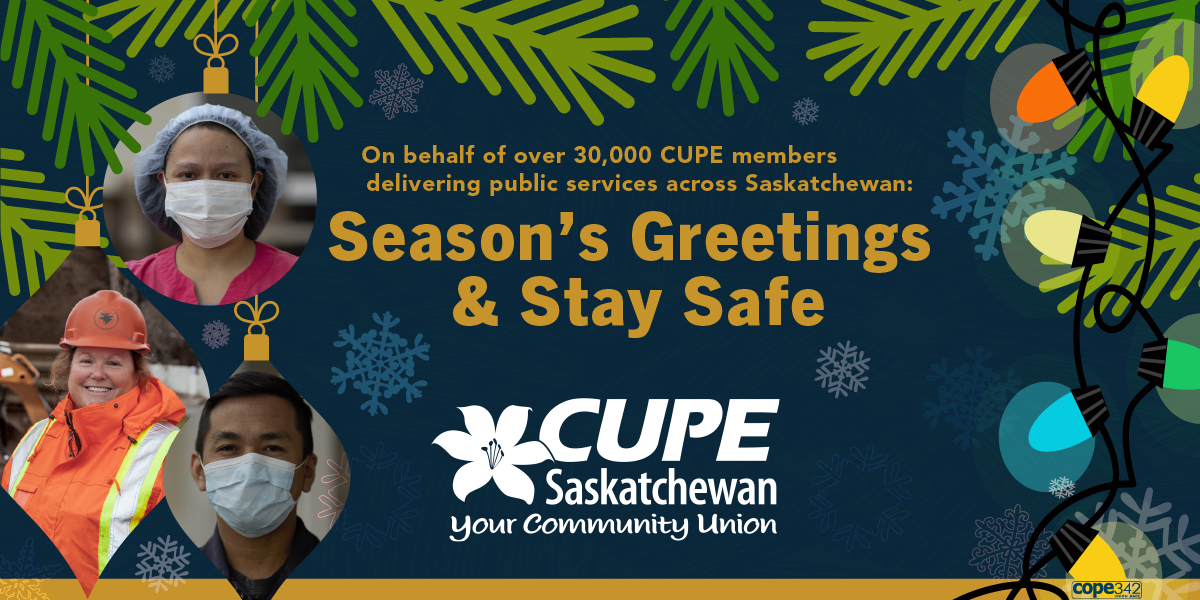
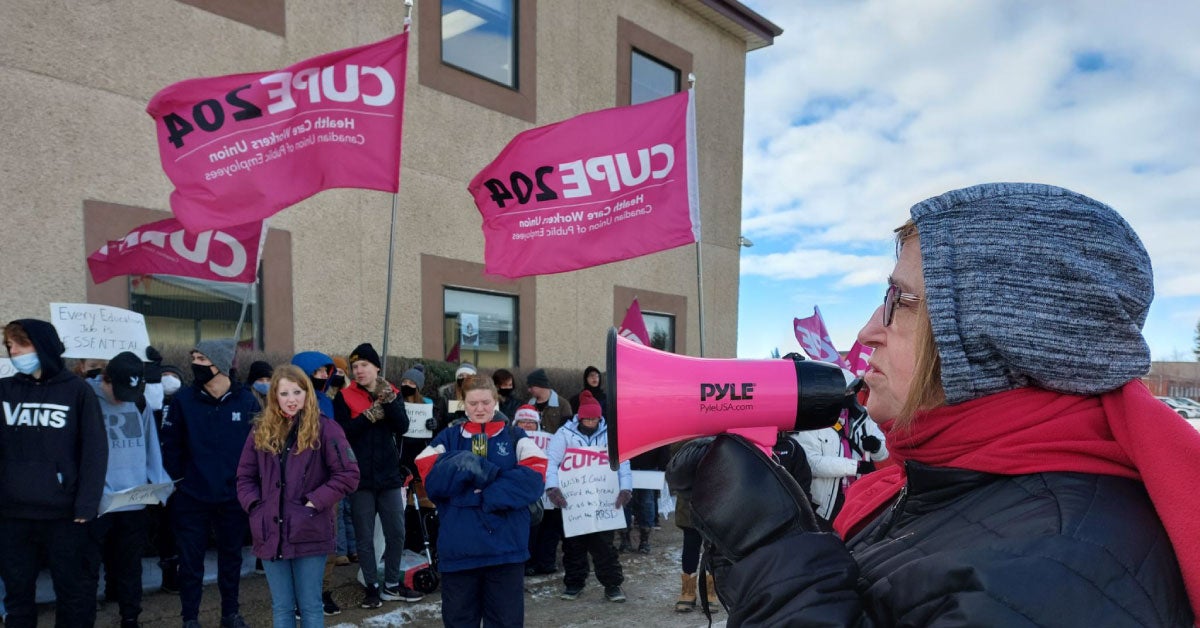 Judy Henley, CUPE Saskatchewan President, and Kent Peterson, CUPE Saskatchewan Secretary-Treasurer, joined striking frontline custodians and cleaners on the picket line outside the Rolling River School Division School Board (RRSD) office in Minnedosa, Manitoba, on Thursday for a rally of support in their fight for a fair contract – together with CUPE National President Mark Hancock, Canadian Labour Congress President Bea Bruske, CUPE Manitoba President Gina McKay, and many more labour leaders and area students.
Judy Henley, CUPE Saskatchewan President, and Kent Peterson, CUPE Saskatchewan Secretary-Treasurer, joined striking frontline custodians and cleaners on the picket line outside the Rolling River School Division School Board (RRSD) office in Minnedosa, Manitoba, on Thursday for a rally of support in their fight for a fair contract – together with CUPE National President Mark Hancock, Canadian Labour Congress President Bea Bruske, CUPE Manitoba President Gina McKay, and many more labour leaders and area students.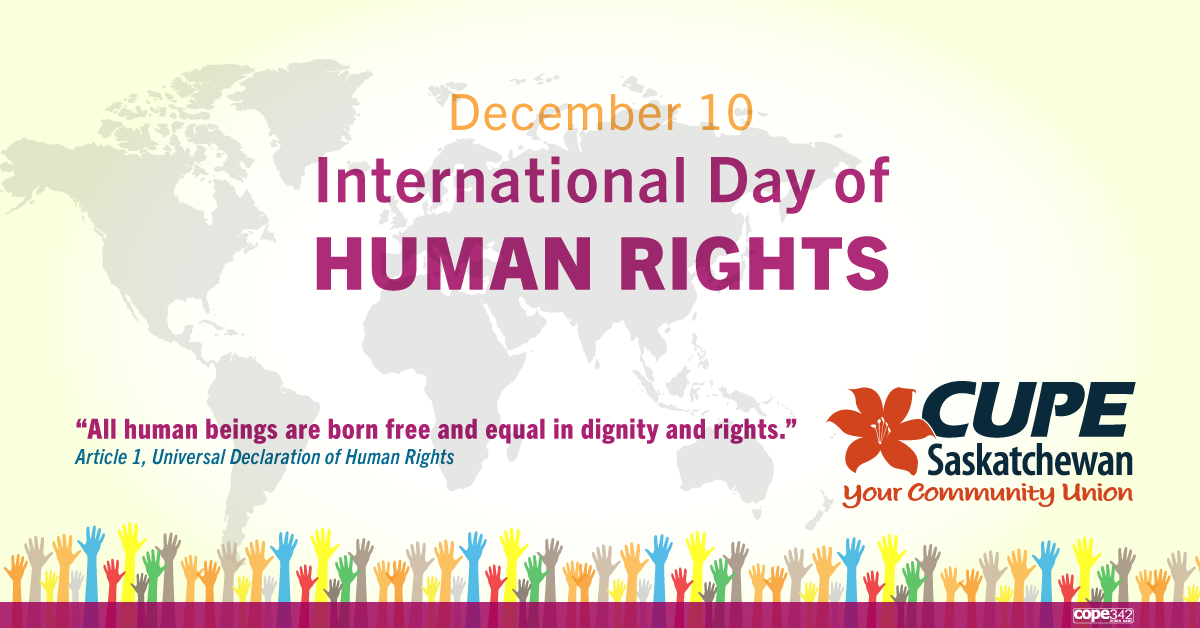 Seventy-three years ago today, on December 10, 1948, the United Nations adopted the Universal Declaration of Human Rights to recognize the inherent dignity and equal and inalienable rights of all members of the human family around the world. The declaration serves as a foundation for freedom, justice and peace, yet the pandemic has highlighted the devastating impacts of the failure to protect human rights and deep-rooted inequalities.
Seventy-three years ago today, on December 10, 1948, the United Nations adopted the Universal Declaration of Human Rights to recognize the inherent dignity and equal and inalienable rights of all members of the human family around the world. The declaration serves as a foundation for freedom, justice and peace, yet the pandemic has highlighted the devastating impacts of the failure to protect human rights and deep-rooted inequalities.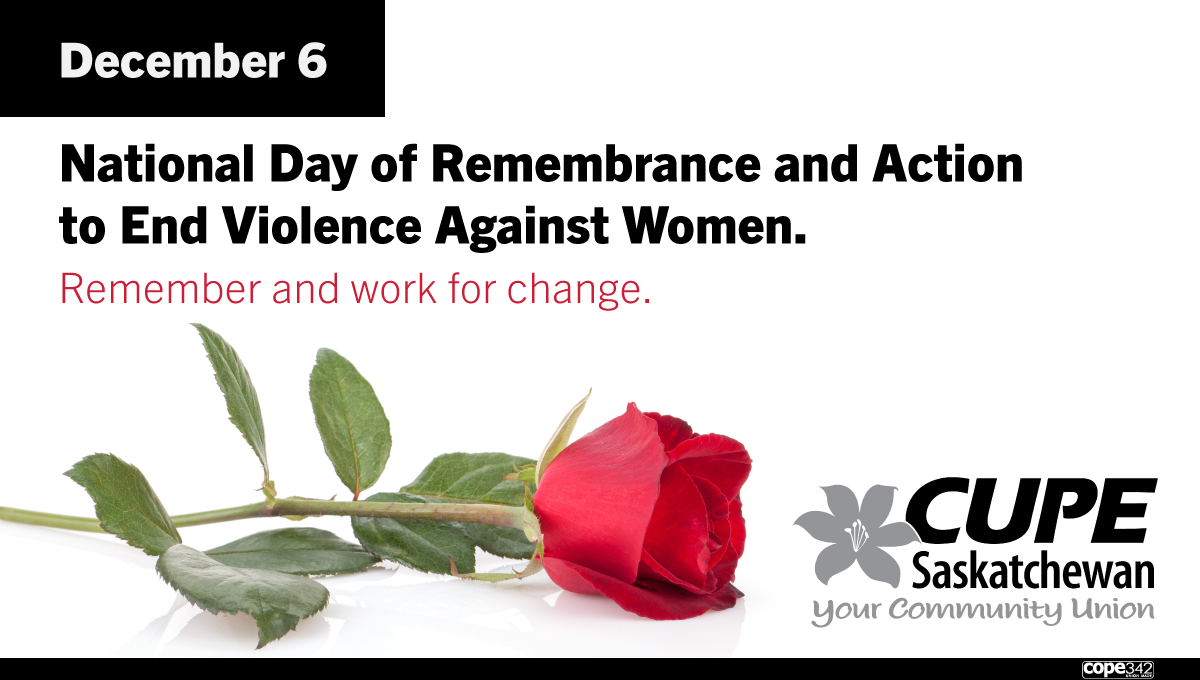 December 6 is the 32nd anniversary of the 1989 École Polytechnique massacre. We pause to remember all those who have lost their lives because of gender-based violence. CUPE Saskatchewan joins in renewing our resolve to stop sexual and gender-based violence in the workplace and in our communities.
December 6 is the 32nd anniversary of the 1989 École Polytechnique massacre. We pause to remember all those who have lost their lives because of gender-based violence. CUPE Saskatchewan joins in renewing our resolve to stop sexual and gender-based violence in the workplace and in our communities.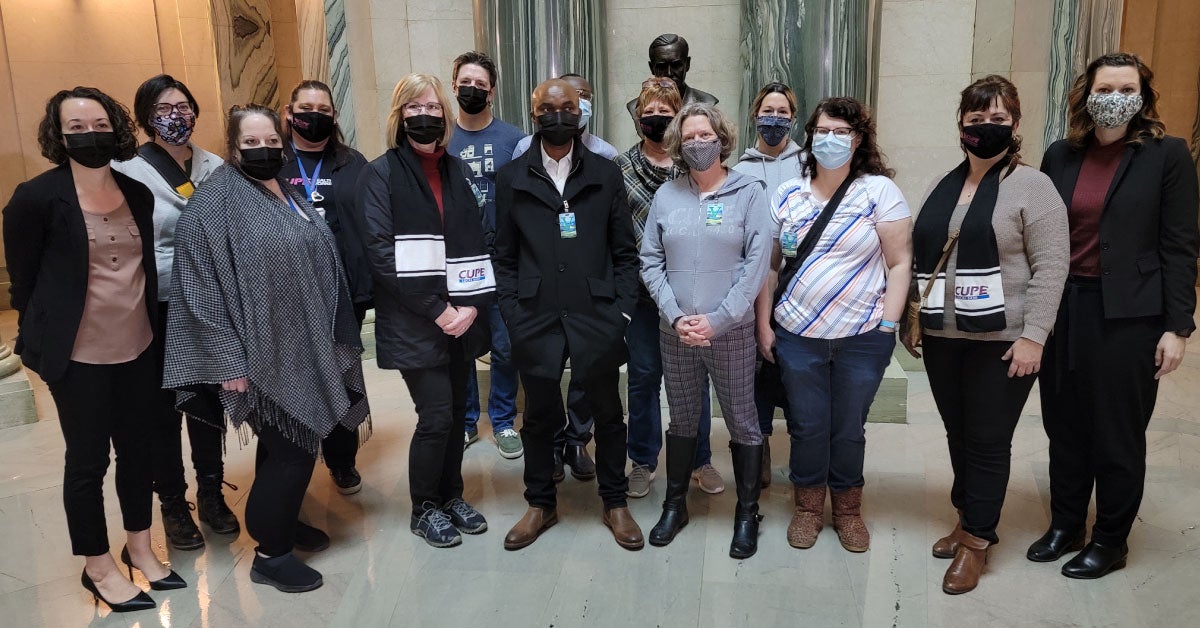 Front line health care workers from
Front line health care workers from 